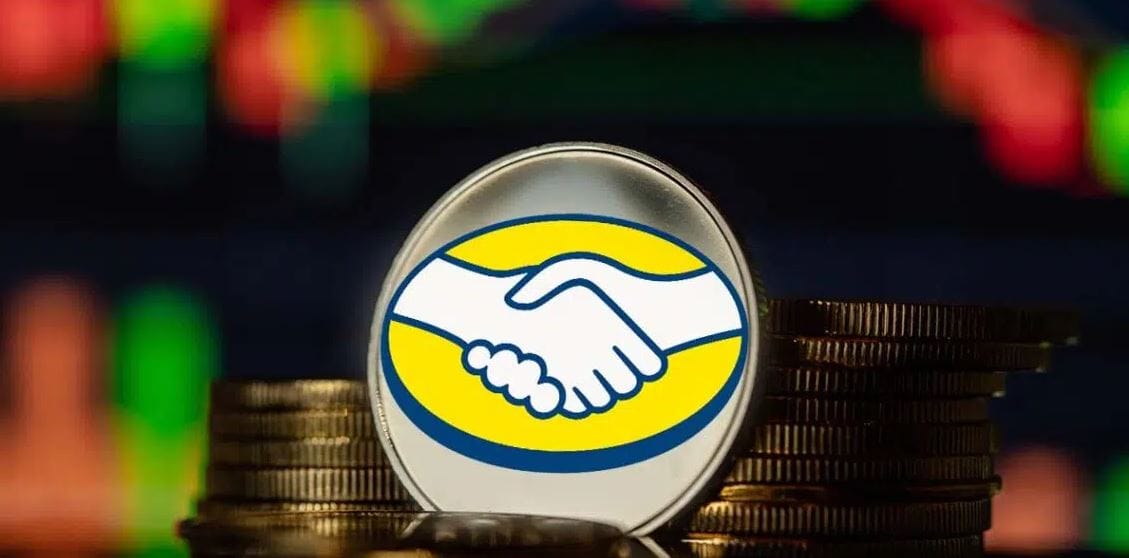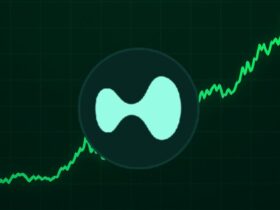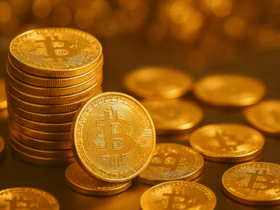Key facts:
The e-commerce giant hopes to offer its cryptocurrencies in all the countries where it operates.
“We need the regulation to change,” said a MercadoPago executive about Argentina.
Almost a month after Mercado Libre, the multinational e-commerce company, launched its own stablecoin called Meli Dólar in Brazil, the company is preparing to offer it in more countries. The next place on the list is Mexico, according to Juan Vita, product director at Mercado Pago, the company’s payment platform.
In conversation with CriptoNoticias, Vita revealed that They want to comply with the regulations of each country in which Mercado Libre operates to offer Meli Dólar“In particular, we will now continue in Mexico, where we will be launching it in the coming days,” he said.
“The intention is to continue bringing the different ‘alts’ to where we operate,” said the director of Mercado Pago. In addition to Brazil and Mexico, Mercado Libre operates in Argentina, Bolivia, Chile, Colombia, Costa Rica, Ecuador, El Salvador, Guatemala, Honduras, Nicaragua, Panama, Paraguay, Peru, Dominican Republic, Uruguay and Venezuela.
Vita’s remarks came at Modular, a crypto industry conference organized by Ripio in São Paulo on September 12, where Vita gave a talk.

At the moment, the altcoins that Mercado Libre has launched are Mercado Coin in August 2022 and Meli Dólar in August 2024, which was developed in collaboration with the Ripio crypto-asset exchange.
Unlike Mercado Coin, which is a volatile cryptoasset whose price fluctuates based on supply and demand, Mercado Dólar is a stablecoin pegged to the dollar (USD). The latter means that it maintains a 1:1 exchange rate with the US currency.
Both Mercado Coin and Mercado Dólar are tokens that reside on the Ethereum network. Both were created to provide rewards to Mercado Libre users, as well as for payments on the platform and their purchase and sale through Mercado Pago.
Vita clarified that Dollar Market does not replace Coin Marketbut it will continue to operate. “We are always experimenting and testing,” he said about the creation of his new crypto asset. In that regard, he said that it seemed “super interesting” to offer a stablecoin to see how it was received by users.
“Meli Dólar comes from two places,” said the director of Mercado Pago. On the one hand, from the program of loyalty of the company. “We are always looking for a unique way to reward users for loyalty and specifically for buying things on Mercado Libre,” he said.
On the other hand, the manager indicated that The launch has to do with a progression of what they have been doing in the “crypto” ecosystem.He recalled that three years ago they entered the industry, offering a wallet for crypto assets, such as bitcoin (BTC), and trading on Mercado Pago in Brazil, Mexico and Chile.
Mercado Libre is also one of the 30 publicly traded companies that holds the most bitcoin as a reserve asset in its treasury, according to data from the explorer BitcoinTreasuries. Precisely, it has 412 BTC which is currently equivalent to 24 million dollars (USD).
Mercado Libre still cannot offer bitcoin and Meli Dólar in Argentina
Although the Mercado Libre team is preparing to comply with the regulations of each country where it operates to offer crypto assets such as Meli Dólar, at the moment it cannot do so in Argentina, where the company was founded in 1999. The reason behind it is the restriction that exists in that place.
“There is a regulation that prevents us PSPs from doing so [proveedores de servicios de pago]such as Mercado Pago, and banks in Argentina to do so,” Vita emphasized in this regard. “We need the regulation to be changed,” he stressed regarding the situation.
“Hopefully at some point it will be lifted,” said the director of Mercado Pago regarding the restriction that exists in Argentina for banks and PSPs to offer crypto assets. This provision has been in force in the country, as CriptoNoticias reported, for more than a year, when the previous government, Alberto Fernández, was in charge.
Vita commented that Mercado Libre has a conversation with the government of Javier Mileipresident of Argentina since December 2023. In fact, the founder of the company, Marcos Galperín, has defended the president on multiple occasions for his ideology of promoting a free market.
However, the Mercado Pago executive said that the elimination of restrictions on the cryptocurrency industry is not something that is being discussed yet with the Argentine government.
In tune, Sebastián Serrano, founder and CEO of Ripio, a company collaborating in the development of Meli Dólar, told CriptoNoticias that they have many conversations with the Milei government, but not yet about lifting restrictions on the ecosystem. Although he did not give details, he revealed that he shows a lot of interest in the development of real world assets (RWA), tokens that represent traditional assets.

“Today the government is very concerned with stabilizing the macroeconomy. So that has eaten up the entire innovation agenda that can be done in the future. But I think that clearly the values of Milei’s government are very much connected to those of the ‘crypto’ world. It is not a government against ‘crypto’,” said Serrano.
Ripio’s head distinguished that Milei’s government has not created any restrictions on the cryptoasset industrybut those that are there are inherited from the previous government. “Obviously I would love another level of aggressiveness, of speed regarding the advancement of a ‘crypto’ agenda, but clearly they have a very difficult situation,” he said.
“The economic situation is difficult. Argentina was very close to hyperinflation, which they managed to contain. In that sense, they have a lot of things to manage that perhaps in the grand scheme of all the things Argentina needs, should not be the priority,” concluded Ripio’s CEO regarding the restrictions on PSPs and banks offering crypto assets.






Leave a Reply